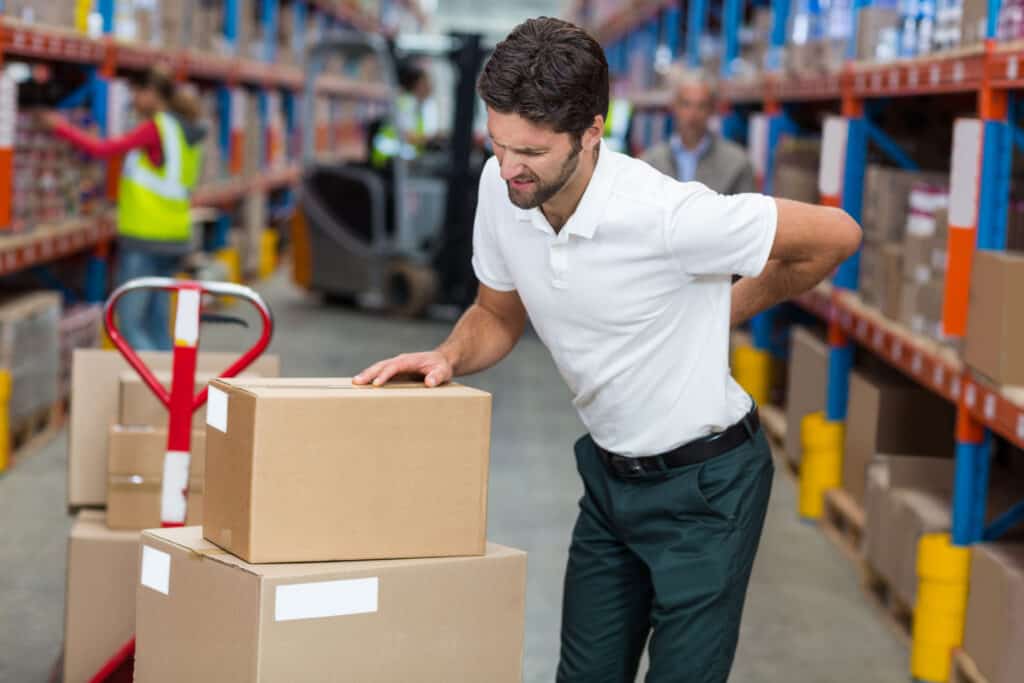
The constant lifting, bending, twisting and running can really do a number on you as a warehouse worker. A joke I often hear in the warehouse is that “every day there is a new pain”.
One of the most affected parts is your back – and more commonly, your lower back. Back muscles are heavily involved when lifting stuff in the warehouse, especially if you are lifting with bad form.
Causes of Back Pain in Warehouse Work
Lifting With Bad Form
Arching your lower back to pick items, for example if you are a loader, is the most common cause of back pain in the warehouse. It puts a lot of pressure on the lower back and cause injuries such as hernias. Correct lifting posture has been discussed later in this article.
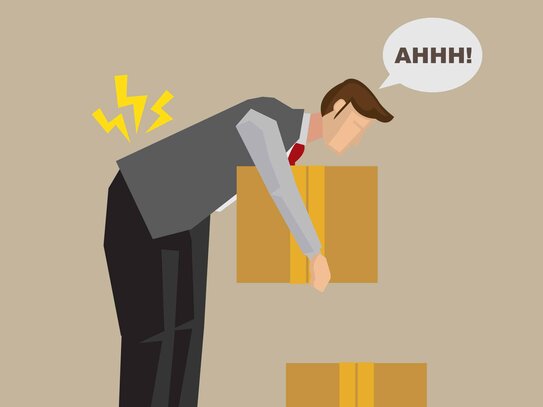
Rounding your back when bending – e.g. when wrapping a pallet – also puts a lot of stress on your spine and can cause herniated discs.
Age
The older we get the higher the probability of developing back injuries. This is because we lose bone strength and muscle elasticity. Intervertebral discs (IVDs) also lose fluid and flexibility as we get older.
If you combine this with the strenuous work done in warehouses, then it’s easy to see how quickly back pain can develop among older people doing manual jobs in warehouses.
How to Prevent Back Pain
Rest
Breaks at work are not just for eating a snack or two. They are also a chance for you to rest. Use your days off for the same reason. Try not to work seven days a week if you can help it. Rest enables muscles (including your back muscles) to heal and recover.
Stretch
Stretching your back helps loosen tight muscles and tendons making them ready for intensive work. Stretching also makes your back more flexible which will enable your back to easily move through a full range of motion.
Wear a Back Brace
Back braces provide low back support which eases pain and prevents back injuries during heavy lifting and performing other strenuous activity in the warehouse. Posture correcting back braces are also makes lifting easier.
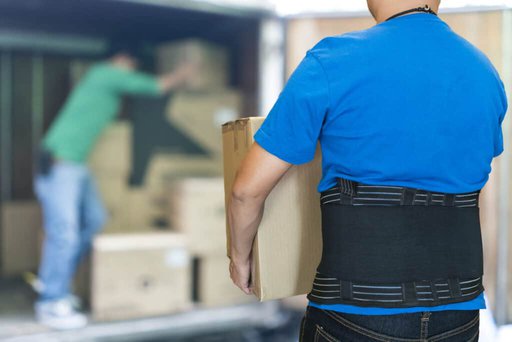
Make sure to choose the correct size for your waist when purchasing a back brace. Brands such as Braceability have thin back braces that can be worn under regular clothes.
Relying too much on a back brace could make your lower back muscles weaker. Your back muscles need to be able to naturally support your upper body. So only wear a back brace when your lifting very heavy items. Otherwise, your back could get weaker and increase your chance of injury at a later time.
Supportive Footwear
The shoes you wear will have a direct influence on the chances of low back injury. Walking on hard warehouse floors all day will wear out your body, including your back. Steel toe shoes with little shock absorption send the resultant shock when walking to the low back (through your legs) instead.
Good warehouse steel toe shoes have proper arch support, enough cushioning (insoles) and a slight heel height. Good quality shoes can be a bit expensive but your low back will thank you for them.
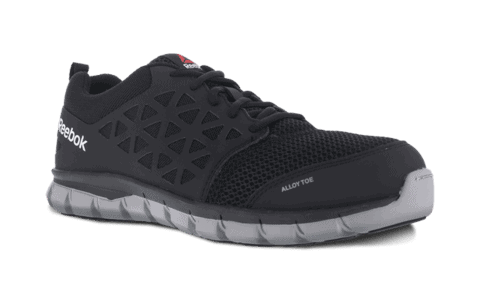
Get insoles (orthotics) to provide extra comfort if you are on your feet all day. Insoles not only protect your feet from fatigue and pain, they also provide pain relief on your lower back during and after your shift by increasing shock absorption.
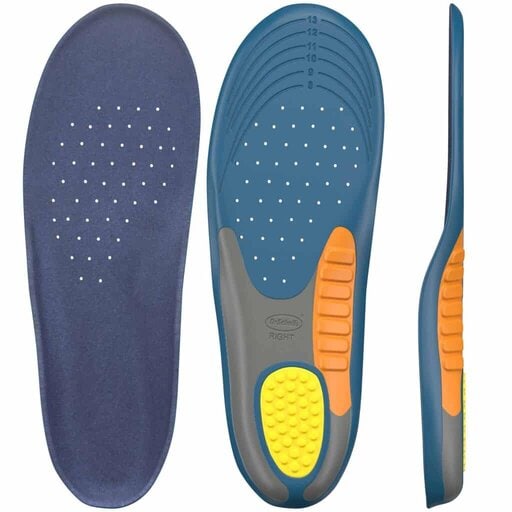
Regular Workouts
One of the best ways to protect your back from injury in the warehouse is to workout your lower back muscles in the gym.
A good weight lifting program provides strength and muscle building that your lower back needs to make working in the warehouse less dangerous and painful.
Deadlifts are one the most useful compound lifts both for your back and overall body. Doing deadlifts once a week is a good starting point. Just make sure you do your research or ask your trainer to help you lift with proper form.
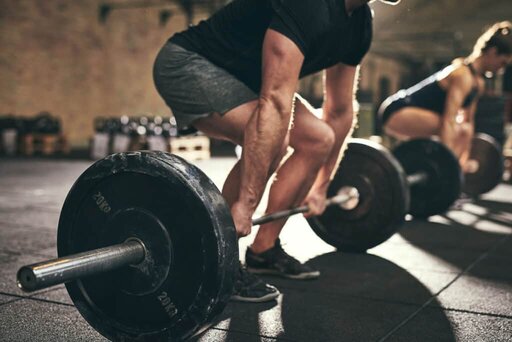
Lift Effectively With Proper Form
Protecting your low back starts with performing correct lifting procedures. When lifting items, bend at the knees to the level of the object. Bring the load between your knees and lift it by using your legs. This is called the squat lift.
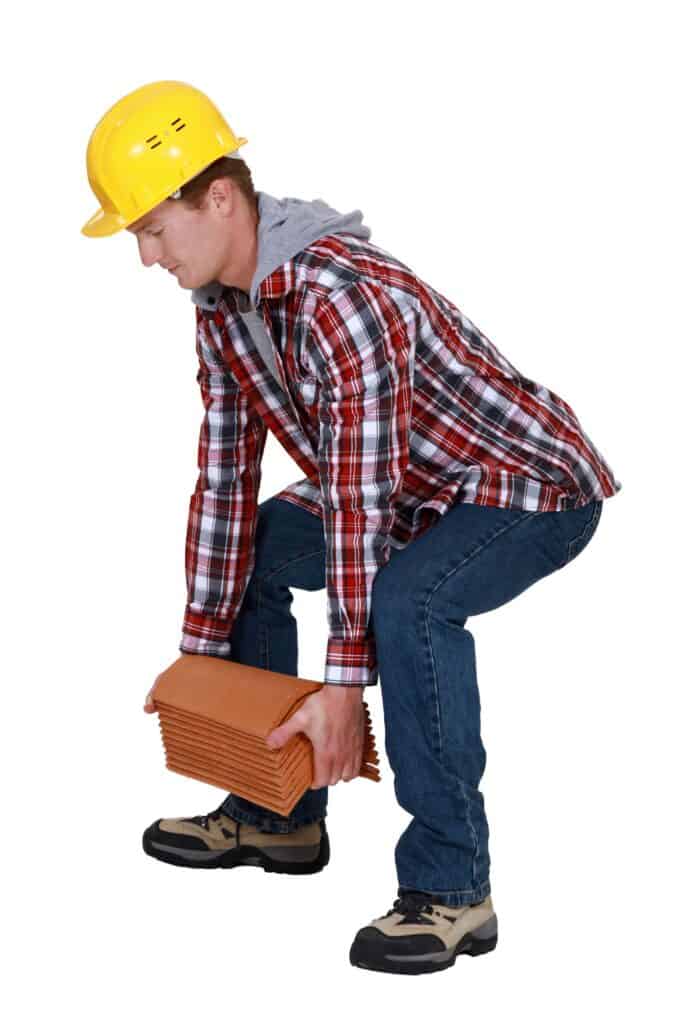
For heavy items such as sucks of onions, stand over the object while bending at the knees with one leg on each side. Keep a straight or slightly arched back with your head up. Then bring the weight of the load close to your body. This reduces the pressure on your low back. This is called the straddle lift.
Use Exoskeleton Suits
Some employers are beginning to implement exoskeleton solutions for their employees. These are primarily used to support your lower back when lifting loads in a bent position.
Exoskeletons used in warehouse environments can be battery powered or use passive means to support the body. They are quite expensive, though, so they are commonly purchased by the company which then distributes them to workers.
Back Pain Remedies That Work
Use Foam Rollers
Using foam rollers on your lower back will help loosen muscle fibres and reduce tension and soreness.
Reduced muscle tension will improve your back’s range of motion and as a result, you will be able to perform better in your warehouse job.
You can get foam rollers for cheap on Amazon such as the Amazon Basics High-Density Round Foam Roller.
To use a foam roller on your low back, you need to lie on your sides and roll right off the pelvis as explained in the video below:
Use a TENS Machine
Transcutaneous electrical nerve stimulation (TENS) machines are battery-operated devices that produce electric current that stimulates the nerves for therapeutic purposes.
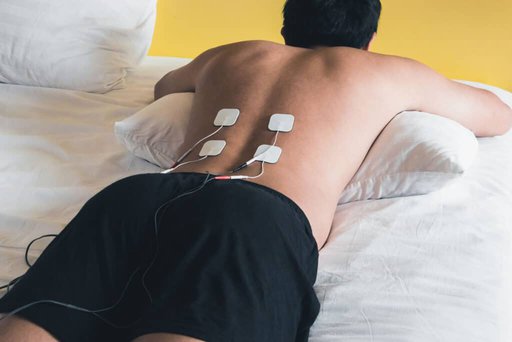
Attach electrodes from the TENS machine to the lower back. As current travels from one electrode to the other, it stimulates back muscles thereby relieving pain. TENS machines are usually very cost effective to buy and operate as they mostly use AA batteries.
The TENS 7000 is a good example of a TENS unit that is affordable and helps with general and back pain relief.
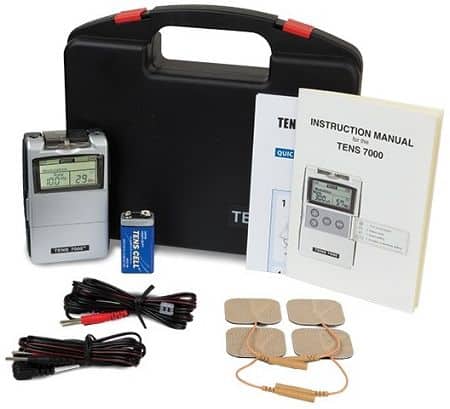
Check out the video below that explains how to attach and use a TENS unit electrodes on the lower back for treatment.
See a Specialist
Regular massages are good for lower back strain or tear. Going to a chiropractor might also help relieve your pain. If you experience chronic lower back pain, consider consulting your GP or a physiotherapist.
I advice against pain killers such as Ibuprofen. I have had coworkers who swear by taking pain killers before work, but I don’t think this is a great idea. NSAIDS such as Ibuprofen have been shown to have dangerous side effects such as increased risk of heart attack, ulcers and stroke. I would hold off on these as much as possible.